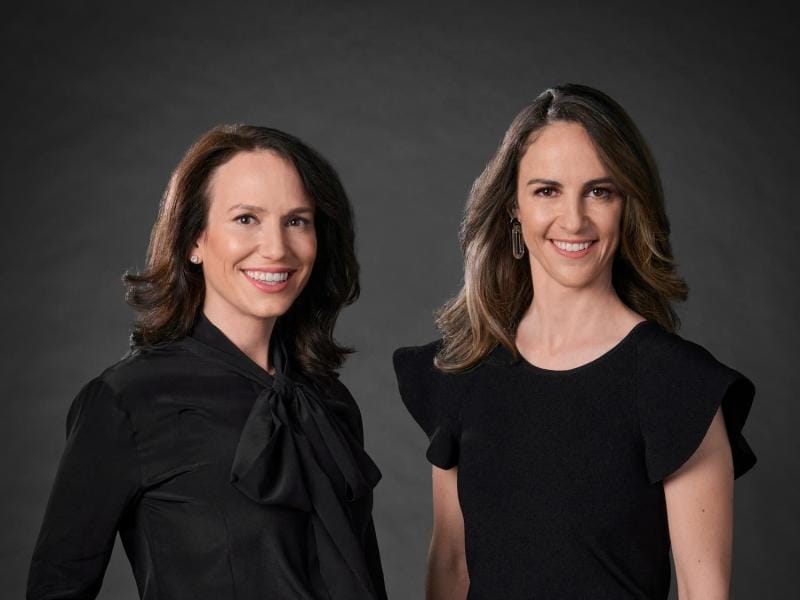New VC Managers Playbook: From Fund I to Fund II

Renata Quintini, co-founder of Renegade Partners, shares her Fund I playbook—winning LPs, creating FOMO, and scaling to Fund II.

So You Want To Raise a Fund?
When it comes to raising your first VC fund, Renata Quintini wants to start with honesty: it’s not quick, and it’s not easy.
Renata has been in venture for nearly two decades — starting at Stanford Endowment, where she built their “emerging manager basket” in the early 2000s, then joining Felicis Ventures in its early days, and later Lux Capital, where she backed frontier tech companies.
Today, she is the co-founder of Renegade Partners, an early-stage firm that raised a $100M debut fund at the height of COVID uncertainty in March 2020. Since then, Renegade has launched a second fund and carved out a unique positioning: investing in companies during what she calls the “teenage years” — the challenging stage after product-market fit but before true scale.
Her career makes her uniquely qualified to give advice to emerging managers. On the How I Raised It podcast, she laid out six lessons for raising your first fund — and for building a long-term firm that LPs will back again and again.
Six Steps to Raising Your First Venture Fund
1. Start With the Right Co-Founder
Raising a fund isn’t just about pitching LPs — it starts with building a strong foundation. For Renata and her co-founder, Roseanne Wincek, that meant testing their partnership before asking anyone for money.
They even worked with a coach — what Renata calls “pre-marriage counseling” — to stress-test whether their personalities, skills, and working styles would complement each other.
“Friendship is one thing. Being great investors is another. But being great co-founders to each other? That’s non-trivial,” she explains.
For emerging managers, this step is often overlooked. But LPs bet on teams, not just track records. Demonstrating a resilient partnership can be a differentiator.
2. Specialize in Stage, Not Industry
While many first-time funds choose a narrow sector (fintech, AI, crypto), Renegade chose to be specialists focused on a specific stage of a startup’s lifecycle.
They focus on companies entering what she calls the “teenage years” — that volatile period when a startup must grow from 10 employees to 30 or more, build middle management, and transition from founder-led sales to a repeatable go-to-market engine.
“It’s like the teenage years,” Renata says, because “a lot changes fast, and if you don’t adapt, you can derail the trajectory.”
By solving universal “growing pains” rather than industry-specific ones, Renegade can back a diverse portfolio — from SaaS to defense — while still offering deep expertise in scaling organizations.
For emerging managers, this is a reminder: your edge doesn’t have to be a vertical thesis. It can be a stage, a founder persona, or a problem you’re uniquely good at helping solve.
3. Find Your Believers
The hardest part of Fund I? That very first close.
Renata explains that while LPs are happy to take meetings, not all are truly ready to commit. She recommends qualifying LPs early with questions like:
- Have you backed Fund I’s before?
- Do you participate in first closes?
- How does your investment committee decide?
For Renegade, the believers were institutional LPs — Ivy League endowments, pensions, and advisory firms that had long histories with the asset class. Those relationships came from Renata and Roseanne’s years at Stanford, Felicis, and IVP.
But she also warns against wishful thinking: “A no is better than being strung along.”
For new managers, this means: track your pipeline realistically. Don’t count every “great meeting” as progress unless there’s tangible next steps — like reference calls or committee reviews.
4. Create Momentum and FOMO
Unlike a startup round, a VC fundraise rarely has one “lead check.” That makes momentum harder to build — but just as critical.
Renata’s advice:
- Set soft close dates. Without deadlines, LPs can and will delay endlessly.
- Leverage anchor LPs. A respected first close partner adds credibility and reduces renegotiations later.
- Signal scarcity. Even if you’re not oversubscribed, communicate timelines that create urgency.
“The hardest thing in fundraising is hope,” Renata says. “You need forcing functions to move people from maybe to yes.”
5. Protect Alignment on Terms
Fundraising is slow enough without renegotiations. Renegade made the decision early: every LP gets the same terms. No special side deals.
This avoided future headaches and reinforced the message of fairness and alignment. And because a respected Ivy League endowment anchored the first close, later LPs had confidence in the legal structure.
Emerging managers are often tempted to bend terms for a big check, or to land their first anchor investor. Renata’s experience suggests the long-term costs outweigh the short-term relief.
6. Always Be Raising
By Fund II, the conversation shifts. LPs want proof, not just promise. That means:
- Founder references: Why do founders choose you over bigger firms?
- Portfolio evidence: What early traction do your companies show?
- Repeat commitments: Which Fund I LPs are increasing allocations?
The key is relationship-building between fundraises. Renata stresses avoiding generic newsletters and instead sending LPs high-signal updates: portfolio wins, industry insights, or authentic engagement tailored to their interests.
“Every time you reach out, bring something new,” she says.
Final Tip
Renata’s most candid advice: raising a fund takes time — 12 to 18 months is normal.
“Normalize the process,” she says. “A no today is not a no forever.”
For emerging managers, that means treating fundraising as a marathon, not a sprint — and building resilience for the emotional ups and downs along the way.
What This Means for Emerging Managers
Renata’s story is a playbook for first-time fund managers. To summarize:
- Team first: Build a durable co-founder partnership.
- Differentiate: Stage, thesis, or founder edge — be specific.
- Qualify LPs: Don’t confuse meetings for commitments.
- Build urgency: Use anchors and timelines to create momentum.
- Stay aligned: Don’t trade fairness for speed.
Think long-term: LP relationships compound, just like portfolio returns.